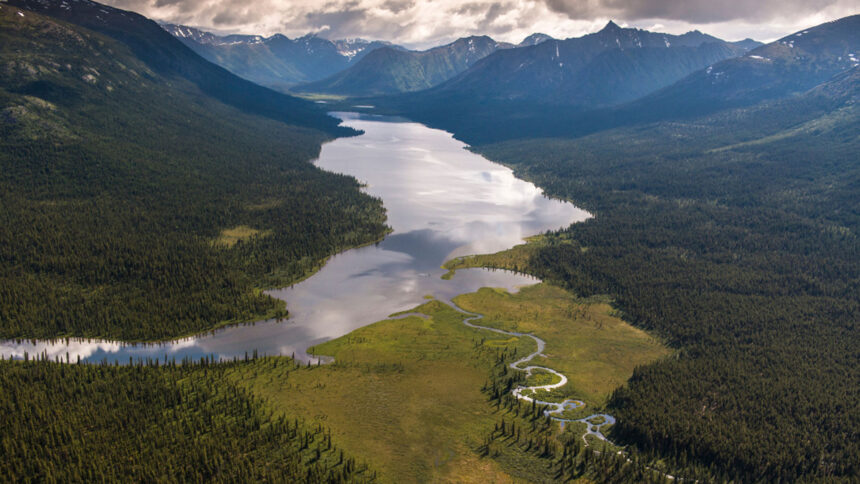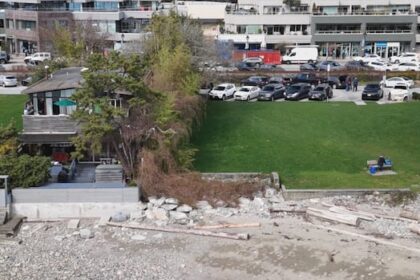Expedited land use plans are in the works for Nations in northwestern British Columbia – work that could shape the future of a sacred wilderness area for the Kaska people in northern B.C by next fall. The push to complete the planning process stems from a provincial announcement earlier this year outlining a new approach to mining that aims to balance economic development, reconciliation and conservation. The province is fast-tracking what is typically a years-long land use planning process, which sets out what types of activities can happen on the land and where. The B.C. government says the goal is to ensure certainty surrounding resource development and land use for industry and five Nations in northwestern B.C., including the Kaska, whose traditional territory spans across the Yukon, the Northwest Territories and B.C. The Kaska’s land-use plan covers 99,000 square kilometres of its territory in northern B.C., about 10 per cent of the province. Gillian Staveley, director of culture and land stewardship with the Dena Kayeh Institute, a non-profit organization that advocates for Kaska land stewardship, told APTN News she was impressed by the province’s initiative. “It showed the leadership that they have in knowing that this is possible, and that’s something that we can stand behind,” she said. Staking of new mining claims has also been paused in the five planning regions as the province and Nations work to complete the plans. “(It gives) us the time and the space to be able to develop this plan, and we’re doing that with our neighboring Nations and with stakeholders and with the general public alike,” Staveley said. Gillian Staveley, director of culture and land stewardship with the Dena Kayeh Institute, applauds the expedited land use planning process. Photo: Vincent Larochelle/APTN News Dene K’éh Kusān At the heart of the Kaska’s land use plan is Dene K’éh Kusān, which means “always be there” in Kaska. Spanning 44,000 square kilometres, Dene K’éh Kusān is a pristine wilderness area within the planning region that’s home to countless wildlife, rugged mountain ranges and boreal forest watersheds. “It’s where we’ve lived since time immemorial, and there’s so much cultural heritage and importance in that area for us,” Staveley said. “It’s a place that’s just so sacred to us.” The Kaska are proposing that Dene K’éh Kusān be designated as an Indigenous Protected and Conserved Area, or IPCA. The IPCA would recognize what the Kaska say is their inherent right to protect their ancestral lands and promote conservation-based economic opportunities like tourism and guide outfitting. Staveley said the ultimate goal is to protect the area from resource extraction. “There is no resource development in the area that we’re trying to protect. We want to keep it that way,” she said. Staveley said the joint land use planning process is helping support that vision as the Kaska want the province to formally recognize Dene K’éh Kusān as an IPCA in its final plan. “There’s so much potential in what we’re proposing within our IPCA and within the larger land use planning as a whole,” she said. “I really see this as the Kaska opening our arms to British Columbians and Canadians, to say, ‘Come visit our incredible homelands, the beauty that is here.’ We want people to be able to take those stories back to their families and say that Dene K’éh Kusān is a world-class protected area.” According to Staveley, work has been underway for decades to put a Kaska land use plan in place, and much of the area included in the planning region is already covered by parks, protected areas and earlier land and resource plans. The Kaska land use plan will update the existing plans and allow for future considerations, like a shared land stewardship vision between the Kaska and the province, climate change and emergency response and environmental and socio-economic benefits. “To bring us even to this point, we’re not starting from scratch,” Staveley said. Rainbow Lake within Dene K’éh Kusān in northern British Columbia. Photo: Dena Kayeh Institute Completion of land use plans pushed back Randene Neill, B.C.’s Minister of Water, Land and Resource Stewardship, said the province is determined to finish the plans by next fall. Photo: APTN News Randene Neill, B.C.’s Minister of Water, Land and Resource Stewardship, said the five Nations have been pushing to have the land use plans completed for years, and the work happening now will help get the plans over the finish line. “We’re trying to fulfill that ask,” she said. Neill said the land use plans would also help the province in its commitment to protect 30 per cent of its land and water by 2030. “We’re going to do it through Reconciliation, to show that this is going to create clarity and predictability and certainty for everybody in this province,” she said. However, Neill said there has been one hiccup. She noted the process was originally intended to take one year with the plans to be finished by June 2026, but a recent government strike delayed the finish date by a few months. She said the plans will now likely be completed by fall 2026. “This is our number one priority,” she said. “We are working really, really hard to stay on track and get this done.” Staveley says the Dena Kayeh Institute hopes to have consensus recommendations for a draft land use plan to present to Kaska leadership and the province next year – a plan she hopes will help protect the land for years to come. “We want to be able to ensure that the areas that are so sacred to us are also safeguarded and that they are as they are today and well into the future, so future generations can enjoy those areas, just as our ancestors once did.” Continue Reading
Kaska, B.C. fast-track land use planning

Leave a Comment










